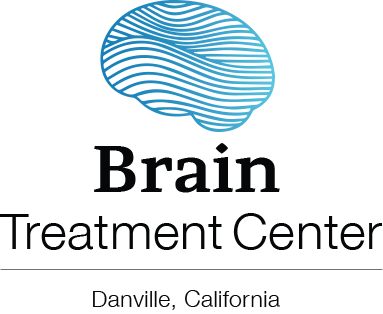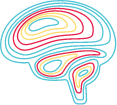
Depression
A Revolutionary Approach to Treat Depression
Have you (or someone close to you) been experiencing a persistent feeling of sadness or loss of interest? Everyone goes through a certain amount of ups and downs in their lives. Sometimes losses or tragedies occur, and depression can set in. This is normal. But if one doesn’t bounce back and depression persists or becomes severe, then one should seek help. Changes in sleep, appetite, energy level, concentration, daily behavior, or self-esteem can often accompany depression. Additionally, depression can be associated with thoughts of suicide.
As stated by the Mayo Clinic: “Depression is a mood disorder that causes a persistent feeling of sadness and loss of interest. Also called major depressive disorder or clinical depression, it affects how you feel, think and behave and can lead to a variety of emotional and physical problems. You may have trouble doing normal day-to-day activities, and sometimes you may feel as if life isn’t worth living.”
According to the Mayo Clinic, more than 3 million people are diagnosed with Depression every year. We don’t have statistics yet for 2020, but based on everything that has been happening in recent times, it’s likely that statistics have risen significantly and many more people are experiencing Depression or have exacerbated symptoms.
MeRT has been used successfully to treat Depression and MDD. The equipment used in the MeRT process has been cleared by the FDA for the Treatment of Depression and Major Depressive Disorder (MDD).
Signs that you are experiencing Depression include:
- Feeling down or depressed longer than a few weeks
- Inability to complete everyday activities
- Low energy levels; no motivation
- Anger, or emotional outbursts
- Irritability
- Poor performance at work or school
- Feelings of isolation
- Loss of interest in social activities, relationships, etc.
- Sleeping too much or sleeping too little
- Trouble concentrating or remembering things
- Feeling guilty or worthless
- Thinking about past events or failures
- Anxiety
- Back or neck pain
- Headaches
- Thoughts of suicide
- Suicide attempts
Depression, also referred to as Clinical Depression or Major Depressive Disorder, can have symptoms that range in type and severity for different people. While antidepressant medication can help some people, it doesn’t help everyone and isn’t always the right treatment for everybody. Medication can also have unpleasant side effects, both short-term and long-term, that are not tolerated well.
Statistics show that 8% to 10% of adults who are depressed will die by suicide; it’s become the 10th leading cause of death in the United States. So if you feel that you or someone close to you are experiencing Depression, it is incredibly important to act and seek medical help.
IF YOU ARE FEELING SUICIDAL, PLEASE CALL 911! YOU CAN ALSO CALL THE NATIONAL SUICIDE PREVENTION LIFELINE AT 988.
For anyone suffering from depression, anxiety, and other symptoms, I highly recommend trying MeRT at the Braincare™ Performance Center. My adult son who has suffered from both problems his entire life, and has been on medication, realized a positive change after the first visit. We saw dramatic improvement after each visit. This technology is truly a magic bullet for the right candidate. The staff is professional and friendly. The facilities are equally professional. I would highly recommend The Braincare™ Performance Center.” – Harold H.
The Brain Treatment Center in Danville Has a New Approach
It’s called MeRT.
MeRT(sm), which stands for Magnetic Resonance Therapy, is a treatment protocol evolved from TMS (Transcranial Magnetic Stimulation). MeRT utilizes TMS technology, but is more tailored as to how it is applied to each individual based on their diagnostics.
Simply stated, magnetic fields are used to stimulate and balance brain function, guided by very sophisticated imaging and diagnostics.
Patients with depression have a few markers that are visible in their EEG studies — an imbalance in brainwave activity between the left and the right hemispheres of the brain, known as asymmetry.
New research is confirming that factors that may contribute to Depression do cause changes in brain function including altered activity of certain neural circuits in the brain.
We work to identify these asymmetries and strengthen healthy brainwave activity to reduce the symptoms of depression for the patient.
We customized MeRT to each individual’s needs based on their diagnostics and imaging. The treatment protocol is tailored as to the location, frequency, duration, and amount of power used by the magnet. Specifically, this technology works by using magnetic waves to stimulate areas of the brain to improve communication, balance, and connectivity. It is non-invasive, painless, and requires no drugs or anesthesia.
A quantitative EEG is performed on each patient in order to determine the exact frequency of the brain. Our clinician, Dr. Julie Kim, along with our scientific team, then evaluate these tests and tailor treatment to each patient’s unique condition, optimized for the best possible results.
For me, depression was the constant feeling of, ‘I want to quit’ and retreat to my home, except I already would be home. MeRT helped me shed this feeling in less that 2 weeks. I couldn’t believe I had spent so many years feeling this way!”
— BTC Patient
Psychiatric News Article: The Benefits of TMS in Treating Major Depressive Disorder
An article in the October 2022 issue of the Psychiatric News provides evidence that TMS (a key component of MeRT treatment) should be considered as first-line treatment for moderate-to-severe Major Depressive Disorder.
The article’s author, Richard A. Bermudes, reviewed a decade’s worth of studies on the effectiveness of TMS, and wrote:
As I read the [APA] guidelines recently and considered the number of new outcome studies conducted with TMS, I believe TMS should be considered in addition to pharmacotherapy and psychotherapy as a first-line treatment for patients with moderate to severe major depressive disorder.”
Read the whole article on the Psychiatric News website.
“Everyone experiences their world a little bit differently.”
“EEGs (electrical pictures of the brain) can tell us when there are abnormalities in neural networks. … And we run that data through a normative database, and we can see, for example, if somebody has an area in the left prefrontal cortex that’s cycling at two Hertz — which means that they may be only processing information two times per second — whereas the rest of their brain may be cycling 11 times per second. That information mismatch may manifest for somebody who has depression. They may lack motivation, feel lethargic, not want to get out of bed.”
But in a different scenario… let’s say it is the visual cortex that’s cycling now at 30 times per second. If you’re scanning your environment 30 times per second, but [are] only able to process it 10 or 11 times per second, this information overload may manifest as depression. And it’s not a one-to-one correlation. Everyone experiences their world a little bit differently.
We can look at these signals and find areas that are abnormal, [then we] use this FDA cleared technology, Transcranial Magnetic Stimulation, to navigate to the area that’s not working properly and try to stimulate it and remind it that it wants to fire at a certain frequency and a certain rate.”
– Dr. Erik Won, President of Wave Neuroscience, from his appearance on the Broken Brain podcast
MeRT
Here at Brain Treatment Center in Danville, we offer MeRT for Depression. This is a unique version of TMS (Transcranial Magnetic Stimulation), with a far more individualized approach to brain modulation. We tailor treatment to the patient’s needs based on frequency, location, and magnetic power used. TMS modulates the brain’s electrical activity by using magnetic fields which pass through the scalp from an electromagnetic coil. This process is non-invasive and painless. Research studies show that this type of treatment is promising for Depression.
Most TMS treatments deliver stimulation to one area of the brain at a fixed frequency for all patients. MeRT, however, is more evolved. We carefully analyze a patient’s initial testing as to the brain’s pattern of function and activity. We then use this information to devise a highly personalized protocol for each patient, with the purpose of encouraging improved brain communication. Patients have indicated that they have experienced significant clinical improvements.*
Treatment for Depression usually lasts four to eight weeks, but can be ongoing. Appointments are 30 to 45 minutes long, Monday through Friday. Generally, the patient will begin to notice improvements during the first week.
While the FDA has cleared the equipment used for MeRT in the treatment of depression that has been resistant to medications, it may also be used off-label for other disorders in the practice of medicine.
Studies have shown altered brain wave oscillations in patients suffering from conditions such as Major Depressive Disorder (MDD), Autism, Traumatic Brain Injury (TBI), Post-Traumatic Stress Disorder (PTSD), Anxiety, and more. MeRT treatment protocol uses a magnetic field to balance and stimulate brain function. The technology involves using sophisticated diagnostics and imaging to customize the treatment for each individual. We then tailor a personalized protocol based on the location, frequency, and amount of power used by the magnet, specific to each person’s unique condition. As a result, MeRT can improve brain communication and synchronization and can lead to significant and long-lasting improvements.
Much of the initial MeRT research has been done by the U.S. Department of Defense for veterans returning from combat. There is an article that was published in Defense One that further explains the DOD’s research and the benefits that MeRT has been shown to have on people suffering from TBI, PTSD, and MDD. Additional studies have been completed in the private sector on other conditions.
MeRT Treatment for Depression: What to Expect
For the initial analysis, you will come in for a comprehensive testing appointment. We will gather your new patient paperwork and then our neuro technician will perform a qEEG and EKG, which will enable us to identify any dysfunction or communication problems in your brain.
This appointment usually takes about 45 minutes. Should you decide to proceed with treatment, we will schedule your assessment period. Your second appointment is also 45 minutes long. During this time, you will meet with a provider for a clinical evaluation. The provider will answer any questions you may have and discuss your applicable treatment plan.
Assessment Period
The assessment period of treatment lasts for two weeks, and will help you, and us, determine how you are responding to treatment. At the end of the assessment period, we will perform a second qEEG to note any changes occurring in your brain.
The first week will be Monday through Friday, and the second week, Monday through Thursday, nine sessions in total, followed by a repeat qEEG to determine progress.
Continuing Treatment
Once the assessment period is complete, and we are seeing progress both clinically and on the qEEG, we will schedule subsequent two-week treatment periods.
The comparison between the initial and second qEEG/clinical evaluation will determine if you are responding. You should also start to experience changes in the way you are feeling during this time. We highly advise a total of six weeks of treatment (which includes the assessment period) for optimal and long-lasting results.
Since each brain is unique, the protocol will be different for each patient as it is based on specific qEEG/EKG data from your brain, and the specific condition being treated. Generally, the results of treatment can last a lifetime, though some people prefer occasional follow-up treatment as needed. But each person is different, and protocols may vary. Your provider will have regularly scheduled follow-up EEGs and meet with you to gauge your progress.
Additional Information
A typical treatment session takes about 45 minutes. You will sit in a chair while the neuro technician administers the treatment near the scalp via a magnetic coil. The gentle magnetic impulses are delivered for six to eight seconds each minute. You may feel a slight sensation while the treatment is occurring, but it is not painful or uncomfortable.
Please note that results and improvements are based on active and strict observation of our regimens. Results may vary based on the individual users and are not guaranteed. Additionally, the results of therapy can vary per individual. In general, the longer the length of MeRT therapy, the longer the changes remain.
I felt like I was alone even though I was surrounded by love and care. It was just a cloud that would linger over my life every now and again. BTC helped me understand what was going on in my head and after a month of treatment, I was grateful to be DEPRESSION FREE and MEDICATION FREE for the first time in my life.”
— BTC Patient


